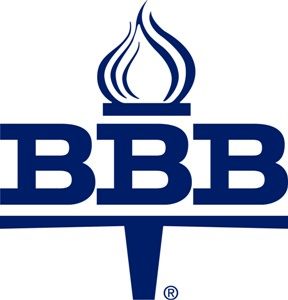
The investigative study– “Don’t Cash That Check: Better Business Bureau Study Shows How Fake Check Scams Bait Consumers” — looks at how fake checks dupe consumers. It digs into the scope of the problem, who is behind it, and the need for law enforcement and consumer education to address the issue.
Scammers often succeed because consumers don’t realize:
- Crediting a bank account does not mean the cashed check is valid. Federal banking rules require that when someone deposits a check into an account, the bank must make the funds available right away – within a day or two. Even when a check is credited to an account, it does not mean the check is good. A week or so later, if the check bounces, the bank will want the money back. Consumers, not the fraudsters, will be on the hook for the funds.
- Cashier’s checks and postal money orders can be forged. A cashier’s check is a check guaranteed by a bank, drawn on the bank’s own funds and signed by a cashier. If a person deposits a cashier’s check, the person’s bank must credit the account by the next day. The same holds true for postal money orders. Scammers use cashier’s checks and postal money orders because many people don’t realize they can be forged.
“Everyone should really understand fake check scams in order to protect themselves,” said Tim Maniscalo, BBB Central Indiana President and CEO. “Banks credit your account before verifying the validity of checks, so it’s critical to know how to spot the red flags before it’s too late.”
Fake check fraud is a huge problem, with complaints to regulatory agencies and consumer watchdog groups doubling over the last three years.
Fraud employing fake checks is rapidly growing and costing billions of dollars. Fake checks were involved in 7 percent of all complaints filed with BBB’s Scam Tracker. The number of complaints received by the Federal Trade Commission’s Consumer Sentinel database and the Internet Fraud Complaint Center more than doubled between 2014 and 2017.
Based on complaint data trends, the study suggests that there may be more than 500,000 victims of counterfeit checks in 2017. The study found the fraud affects victims of all ages and income levels, but consumers between 20-29 reported being victimized by the scam more than consumers of any other age range.
One central Indiana resident lost more than $1,600 in a fake check overpayment scam. After posting his car for sale on LetGo, he was contacted by a buyer. The buyer sent two checks (each were $2,000 more than the asking price) via express mail delivery. Per instructions, the Indiana resident deposited one check, and sent $1,650 of the overpayment to the buyer in Texas via Western Union and Money Gram. His bank informed him later that the check was not valid and he would have to pay NSF fees.
“The hard truth is that you are responsible for everything that is deposited into your account, said Andy Shank, Assistant Vice President Fraud Investigations Manager for Elements Financial. “If a check is returned later for any reason, it is your account that is subject to the funds being withdrawn and various fees. If you’ve already sent some of the money from the check back to the fraudsters, that money is long gone and you are responsible for the balance owed to your financial institution.”
The National Consumers League, which also receives complaints from fraud victims at fraud.org, found that fake checks complaints in 2017 were up 12% and was the second most common type of complaint over all, after online order issues.
Nigerian gangs appear to be behind most of this fraud, often using romance fraud victims and other “money mules” to receive money from victims. Many fake checks and money orders are shipped to the U.S. from Nigeria.
The report recommends:
- Organizations such as BBB and regulatory agencies should do more to provide fake check fraud prevention education.
- With wide-scale use of money mules and others to assist in frauds, it would be useful for law enforcement agencies to work collaboratively to both identify these individuals and to take action to ensure that they end these activities.
- Investigative agencies may need more resources to effectively prosecute fake checks and other widespread frauds.
- Continued law enforcement coordination and training with enforcement counterparts in Nigeria and elsewhere should remain important and should be strengthened.
- Banks and financial institutions might consider more collective efforts to educate their customers about fake check frauds.
What to do if you have deposited a fake check into your account:
- Notify your bank or the bank that appears to have issued the check. •
- File a complaint:
- Better Business Bureau, or call (317) 488-2222
- Federal Trade Commission, 877-FTC-Help
- Internet Crime Complaint Center
- S. Postal Inspection Service o Western Union, 1-800-448-1492
- MoneyGram, 1-800-926-9400
- Green Dot, 1-866-795-7597
Victims who are seniors or other vulnerable adults may be able to obtain help through Adult Protective Services, which has offices in every state and many counties. Find a local office here.



